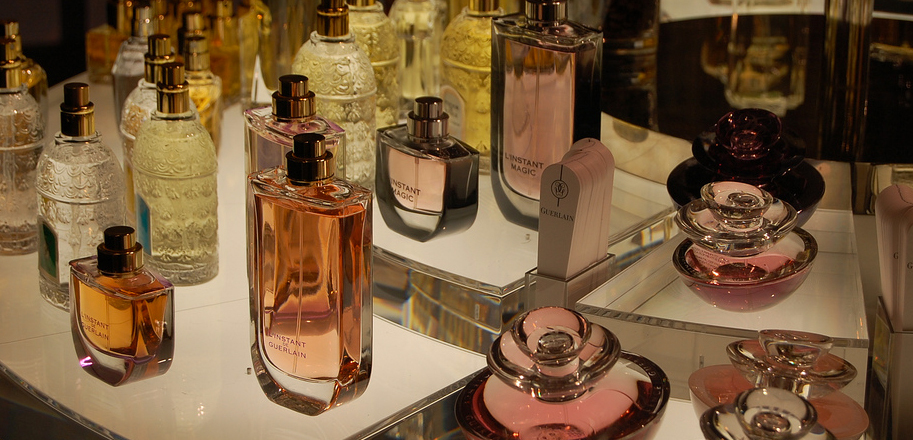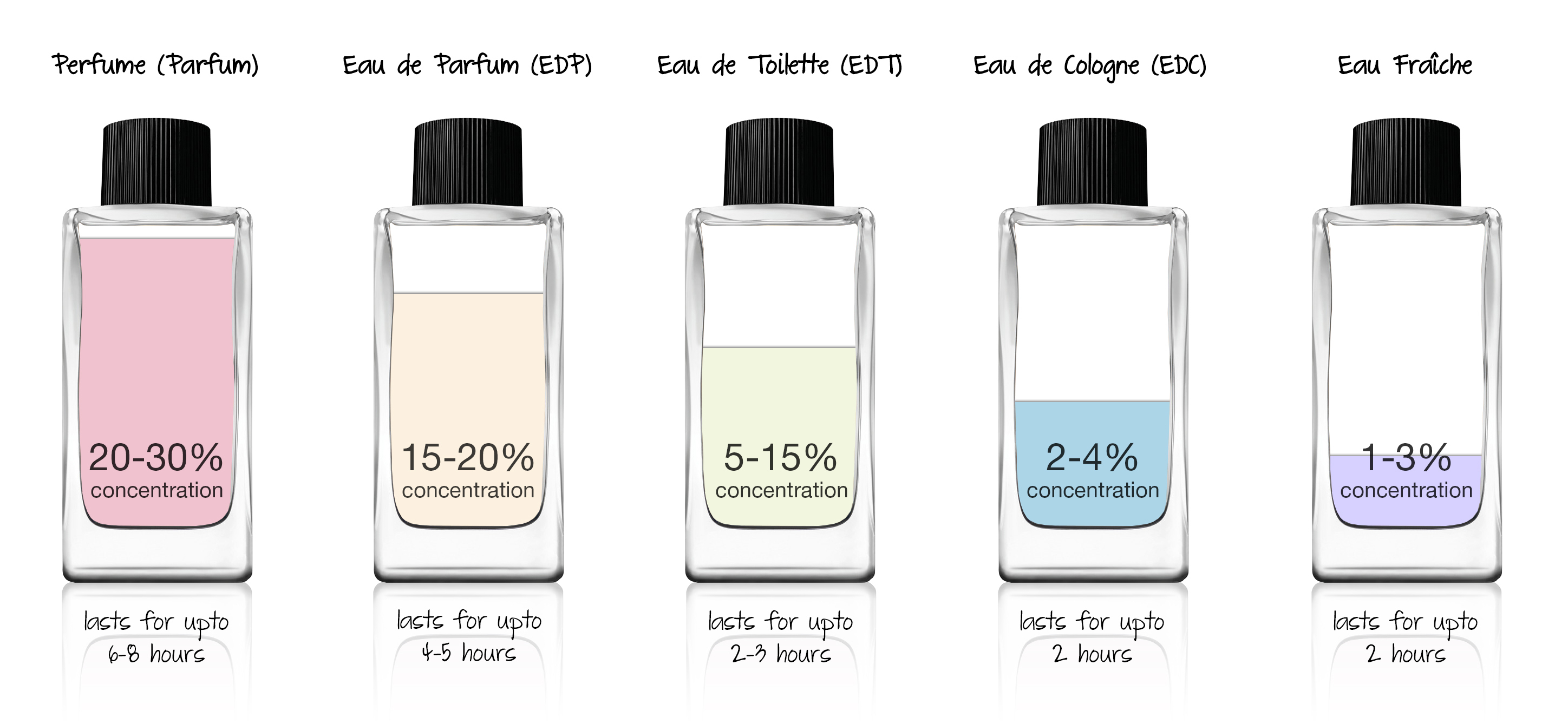The Best of British delivered to Tanzania!
Categories Blog How to choose a fragrance EDP (Eau de Parfum) v...
How to choose a fragrance EDP (Eau de Parfum) vs EDT (Eau de Toilette)
Confused when it comes to choosing the perfect fragrance? You are not the only one!

The difference between a Perfume, Eau de Parfum, or Eau de Toilette is probably one of the most frequently asked questions about perfume and rightly so because it is also one of the most misinterpreted!
To put it simply, Perfume, Eau de Parfum, Eau de Toilette, and Cologne are different in their concentrations of fragrance oils, but that’s not all! These different concentrations DO NOT necessarily mean different levels of quality, and furthermore, they may also include different fragrance notes entirely!
For example, in some cases, these differences in notes can make the Perfume version of a scent, for example, a completely different fragrance than the Eau de Toilette of the same name. But still the most straightforward difference between a Perfume, Eau de Parfum, Eau de Toilette and a Cologne is the concentration of oils used in the fragrance.
A Cologne or sometimes called an Eau de Cologne or an Eau Fraiche is between 2-5% Perfume oil An Eau de Toilette is between 4-10% Perfume oil An Eau de Parfum is between 8-15% Perfume oil A Perfume or sometimes called an Extrait is between 15-25% Perfume oil Likewise, these numbers also indicate the amount of alcohol and water used to make up the bulk of the fragrance. Now some think that this translates into longevity, meaning that a Perfume is sure to last longer than an Eau de Toilette; however, this is not always true.
EDP is always more expensive than EDT. This is because EDP has more concentration or parfum which will tend to last longer

While, the science behind this lends credit to this assumption, being that alcohol and water evaporate quicker hence a liquid with more oils in it would remain longer, this isn’t necessarily the case. One reason for this, is because Perfumes need to be dabbed on the skin, which lends to a more intimate scent experience, whereas an Eau de Parfume for example can be sprayed liberally over skin and clothes leading to a potentially stronger longevity.
Furthermore, different fragrances have different silages (how close they wear to the body), so a fragrance with a weak silage might not smell as strong and hence dissipate sooner even if it’s an Eau de Parfum, where an Eau de Toilette of different scent may smell present all day even though it has a weaker concentration of oils. And this is usually do to the different notes used. However, that’s not all that may be different between these concentrations. Quality of fragrance oils used also play a part in how strong and how long a fragrance lasts. Higher quality oils tend to take more time to develop and thus linger longer on the skin than their synthetic counterparts.
Some perfume houses/companies also may use more expensive natural perfume oils in only the Perfume version and then synthetic produced notes in the others. In addition, they may use different notes or different concentrations of notes between say a Perfume and an Eau de Toilette. And sometimes, these differences can be very obvious. For example, Guerlain created the fragrance L’instant. The Perfume version is sweet, warm, and powdery featuring strong honey, vanilla, benzoin, and Iris notes. But the Eau de Perfum version of the same fragrance has none of these notes and instead is more fresh and citrusy. Another example is Chloe by Chloe. With this fragrance the Perfume version is more of a heady rose scent featuring powerful gardenia and earthy cedar and smooth amber. But in the Eau de Toilette version, none of these notes are present and instead powdery iris is present along with refreshing notes of orange and watermelon.
To add yet further variations of fragrances, some perfume houses/companies will create different versions of their most popular scents for different occasions, limited editions, or for different seasons. Summer, especially, is a season where you might see lighter versions of some of the more popular scents. These are usually referred to as an Eau Fraiche, or an L’eau. These Summer scents are usually lighter concentrations of their Eau de Parfum counter parts, but they also frequently showcase the lighter and more fresh scent notes of the fragrance. Featuring more white/delicate florals, citrus, or green/water notes. As you can see, choosing the right concentration of fragrance can be a tricky business. Although, there is definitely a difference in concentration of fragrance oils, there may also be differences in quality and notes used within a fragrance line and so it is extremely important to smell them all. Never assume that an Eau de Parfume of a particular fragrance is going to smell exactly like the Eau de Toilette.
If you know you like a particular scent, do some research and find out which notes are used in each concentration either by asking the sales associate or searching online. But most importantly, don’t assume they’re all the same. Contact us on whatsapp +44 7922 950 797 to discuss the choices that you may like.



